Five questions for the candidates on your (virtual) doorstep
- Published
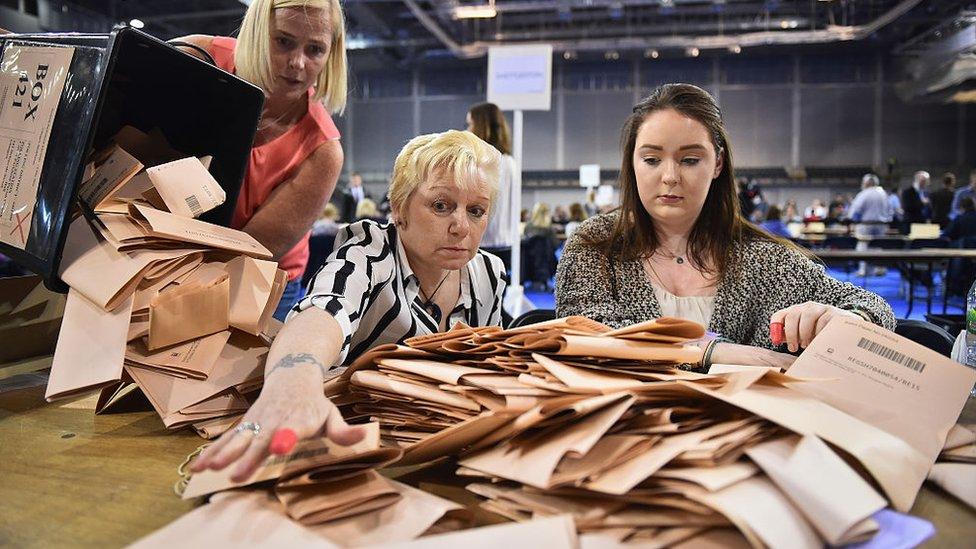
By 7 May, when the results start to come in, the Scottish Parliament election campaign will probably have been simplified to one or two slogans.
At the last UK general election "Get Brexit Done" was a prime example of a three-word slogan that cut through the noise of electoral conflict and lodged in voters' minds.
So what will it be this time?
Ready for Change: Put Recovery First: Secure Our Future: Change Must Come: or Vote Like Our Future Depends On It?
Of course, the issues to be decided at this election are far more complex than slogans.
So for those who want to dig deeper into the campaign, and the five years ahead for the MSPs who are elected, here are five issues on which you could put as questions to the candidate who knocks on your virtual door and asks for your vote.
1. How are you going to rebuild the economy when the pandemic crisis is over?
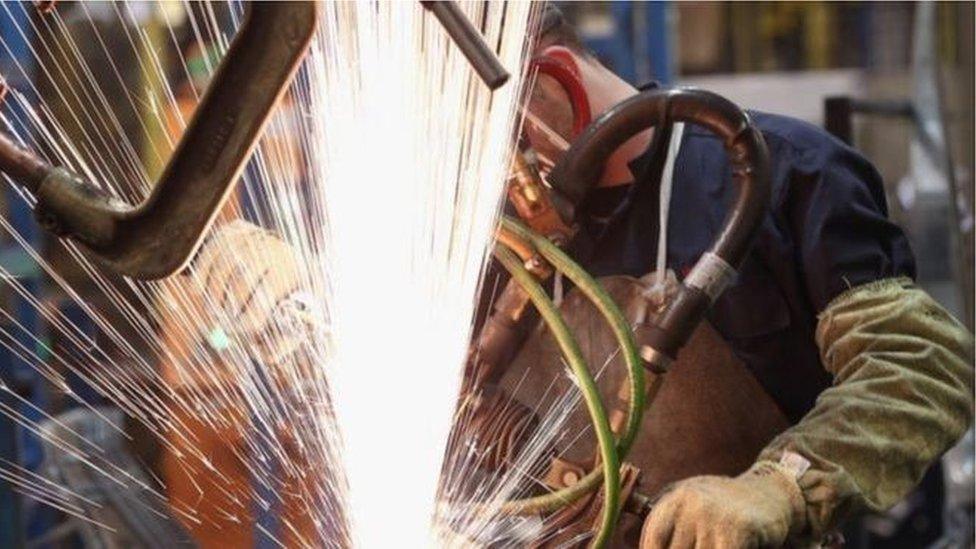
Last year, saw the deepest recession in more than 300 years. This year has begun with a further lockdown and 360,000 Scots on furlough.
Unemployment-related benefit claims have nearly doubled in a year.
Employers are facing financial stress. Hospitality, tourism and performing arts have been shuttered. Many firms face high risk of collapse.
The campaign will reflect support for the economy through the crisis. There will be pressure for its continuation.
But as support unwinds, what will be required for the economy to get back to speed - using the powers that Holyrood has, as well as powers that some will argue it should have?
Could there be vouchers to stimulate spending, on staycations and local shops? Would tax cuts or more spending be better ways to spark activity? What about less red tape on business, and replacement of business rates?
For those being left behind, should Holyrood deploy new welfare powers? Should it go further on childcare, requiring better pay and job security?
And there's a big question looming over public finances: at what point, and how sharply, should the deficit be reined in? That decision currently lies with Downing Street but it will have consequences for taxation and spending choices at Holyrood.
So how should the next Scottish administration respond: by using Holyrood's income tax powers, council tax and business rates? Where would the axe fall on public spending?
How to get the economy growing and how many new jobs can be created are conventional questions at an election.
An unprecedented crisis presents an opportunity to ask a bigger question: after Covid, in what ways do you want society and the economy to be changed for the better?
2. What will you do to secure the NHS and ensure care for those who need it?
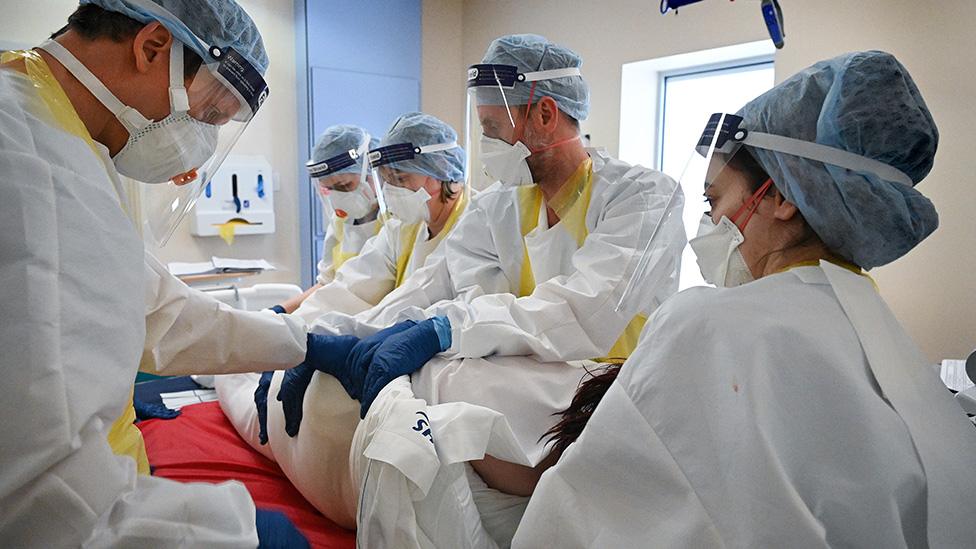
Much of the health service has been running hot for more than a year. Some parts have not. There is a backlog of consultations and procedures.
What will that take to secure care when it is needed? More money or staff? Or are there underlying problems of recruiting and retaining health workers, even with money?
Audit Scotland, the official spending watchdog, says the NHS needs more reform if it is to be sustainable. It may need more capacity to deal with peaks of demand that we've seen recently. That may require a reset of what we can expect of it.
So are our political leaders going to level with us on what will be required?
The pandemic has also put the spotlight on long-term care. It has given more urgency to questions that have long gone unanswered across the UK: how can care in older age be provided sustainably?
What is a fair model for sharing long-term care costs between the individual and the state? Should government run care homes, or regulate them better?
3. What will you do about the time young people have lost in education?
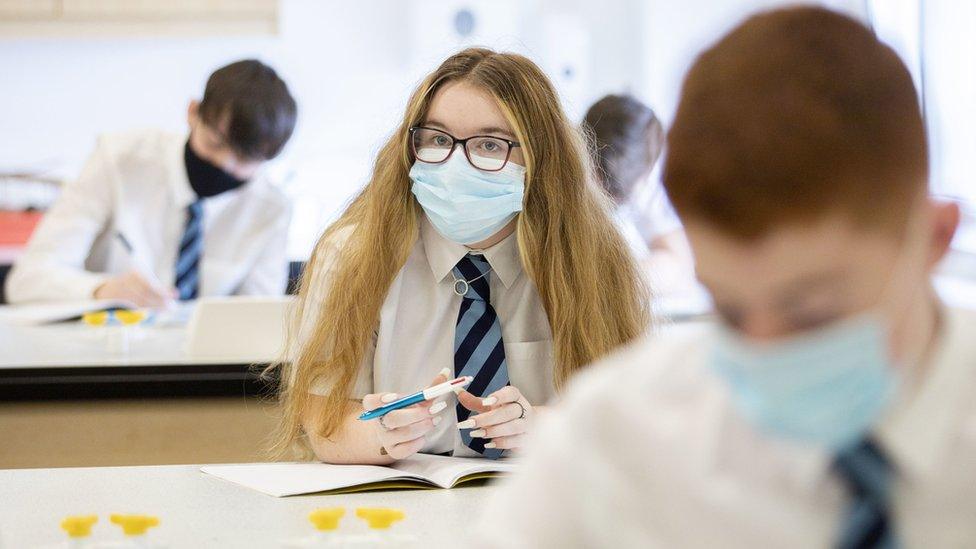
Pupils have missed much of their schooling over the past year. For many, the learning habit has been broken.
How to mend it? With longer school hours, use of holiday time, or tutoring?
How much money and effort should be put into supporting those who fell behind most, worsening attainment gaps.
A report this month from Audit Scotland, external shows that, even before the pandemic, the poverty-related attainment gap remained wide and fell short of the Scottish Government's aims.
How much should the educational crisis be an opportunity for a reset on schooling, perhaps including an end to leaving certificate exams?
There are also health, gender and regional inequalities. Child poverty remains obstinately high. So how much should be done to close these gaps in opportunity?
On health, what about a more intrusive approach to the food choices we make, using taxes or restricting choice in shops and eateries?
4. How far and how fast will you go to tackle climate change?
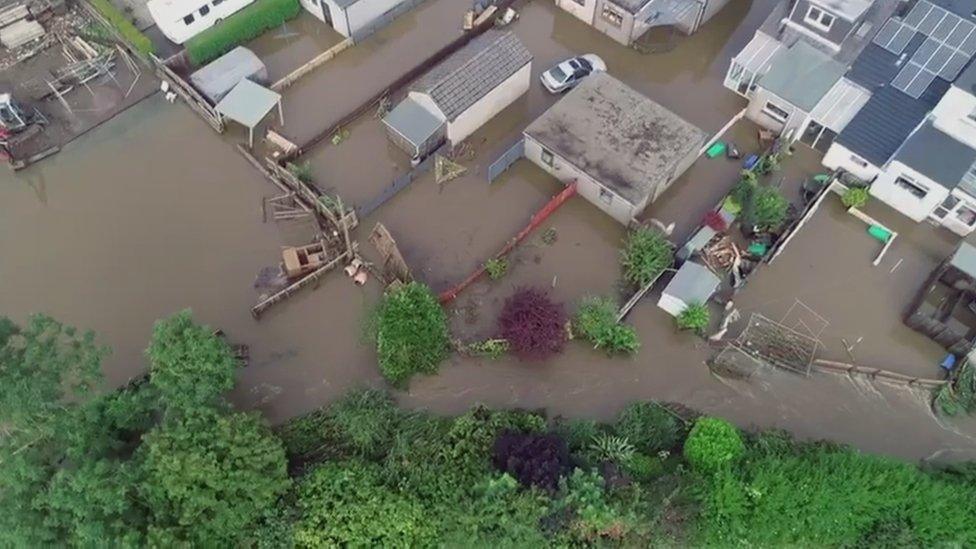
Mainstream parties are agreed that climate change has to be tackled. They vary on what to do about it and at what pace. The choices are not easy.
There are enormous costs to making the transition from an economy lubricated by oil and heated by gas, to one with net zero emissions.
Some fall on government, to subsidise electric vehicles and charging points, or paying to make homes more energy efficient.
Many costs fall on the public, through energy bills or indirectly through business costs passed on to customers.
There are energy efficiency standards for building a new house, for example. The more stringent they become, the higher the cost to the house builder, who passes them to the buyer. Business, from steel-making to meat farming, faces rising costs from this.
Governments must choose how much money they put into tackling climate change. And how much should they cut projects likely to increase pollution, such as new roads?
How much do they pass costs on to business and to voters through regulation and tax?
And should they shut down industries that pollute heavily, doing to oil and gas what has happened to coal? If so, they risk displacing the pollution, as well as the jobs, to another country with less stringent regulation.
5. How could government in Scotland be run better?
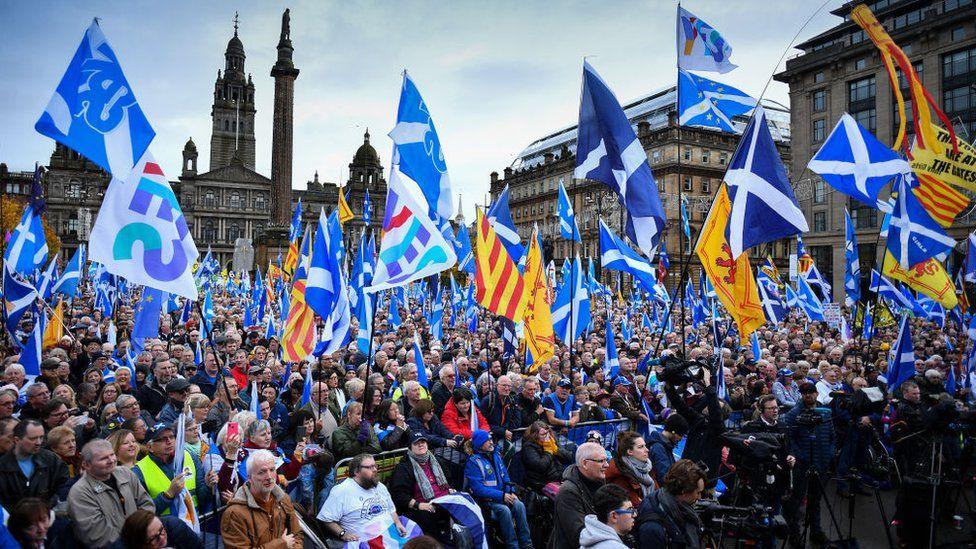
The questions of independence, federalism, the role of Westminster and the impact of Brexit will probably play a more prominent role than questions of financial priorities or public service reform.
These are the issues on which political parties and Scottish voters are most clearly divided. And campaigns tend to focus on dividing lines.
If you haven't made up your mind on independence or its alternatives, you're the person candidates should be trying to persuade, so you're in a strong position to demand answers.
For instance, within the UK, how might the Scottish government relations with Westminster be improved, and put on a more stable footing? How could federalism work? How to offset Brexit's harm to exports?
If there's a move to leave the UK, Brexit has taught hard lessons: what would the cost be, the impact on public finances and the economy, and how long would the transition last before the claimed benefits emerge? Wouldn't Whitehall make it as difficult as Brussels made Brexit?
Some of these issues will feature in the campaign, potentially crowding out others.
You may have your own concerns; crime and justice, drug deaths, housing, public transport, students, arts and culture, minority rights, or the quality of political leadership and representation.
The campaign is a time to ask. Until polls close on 6 May, the voters are in charge.

POLICIES: Who should I vote for?
PODLITICAL: Updates from the campaign
